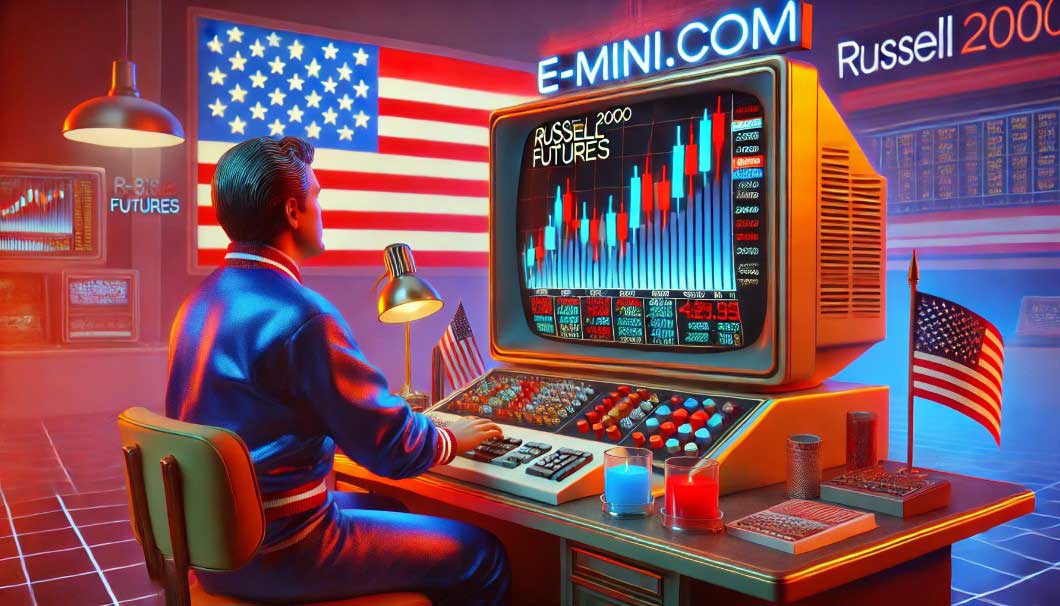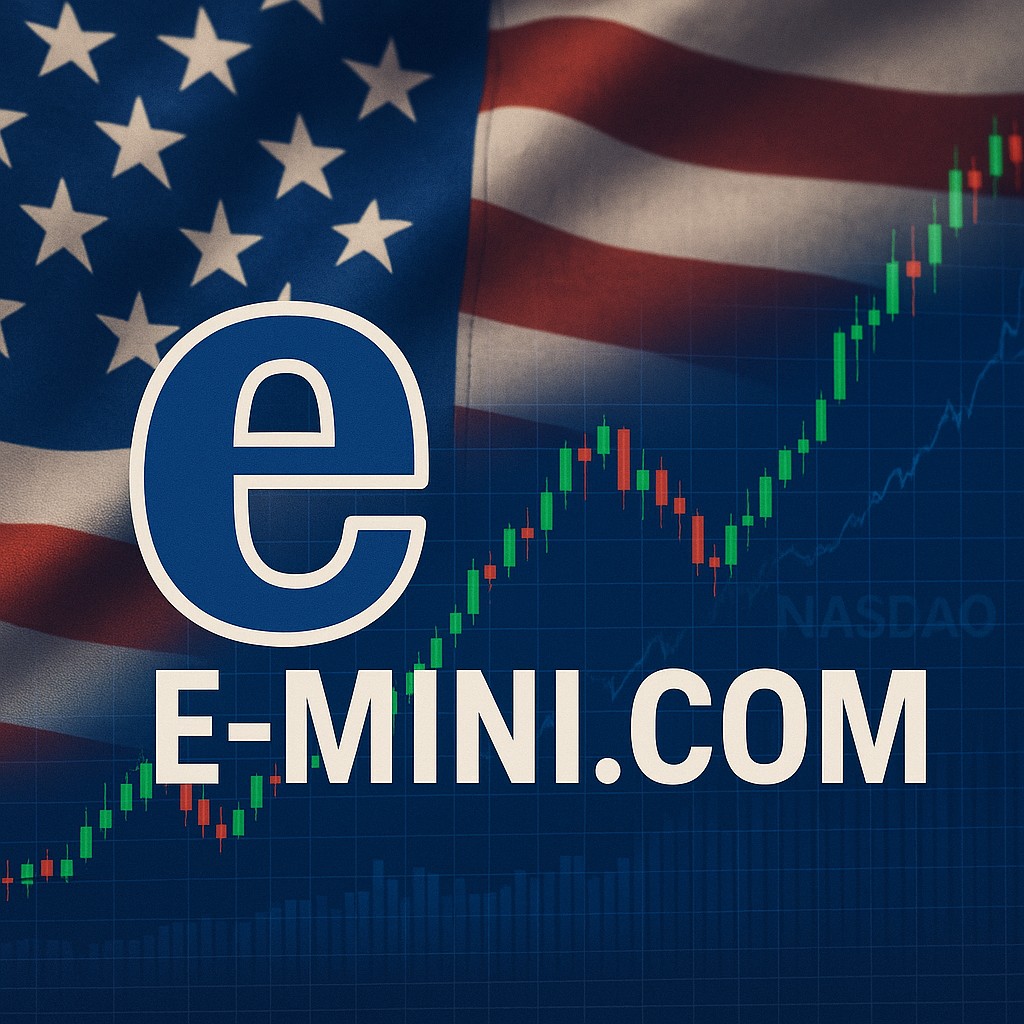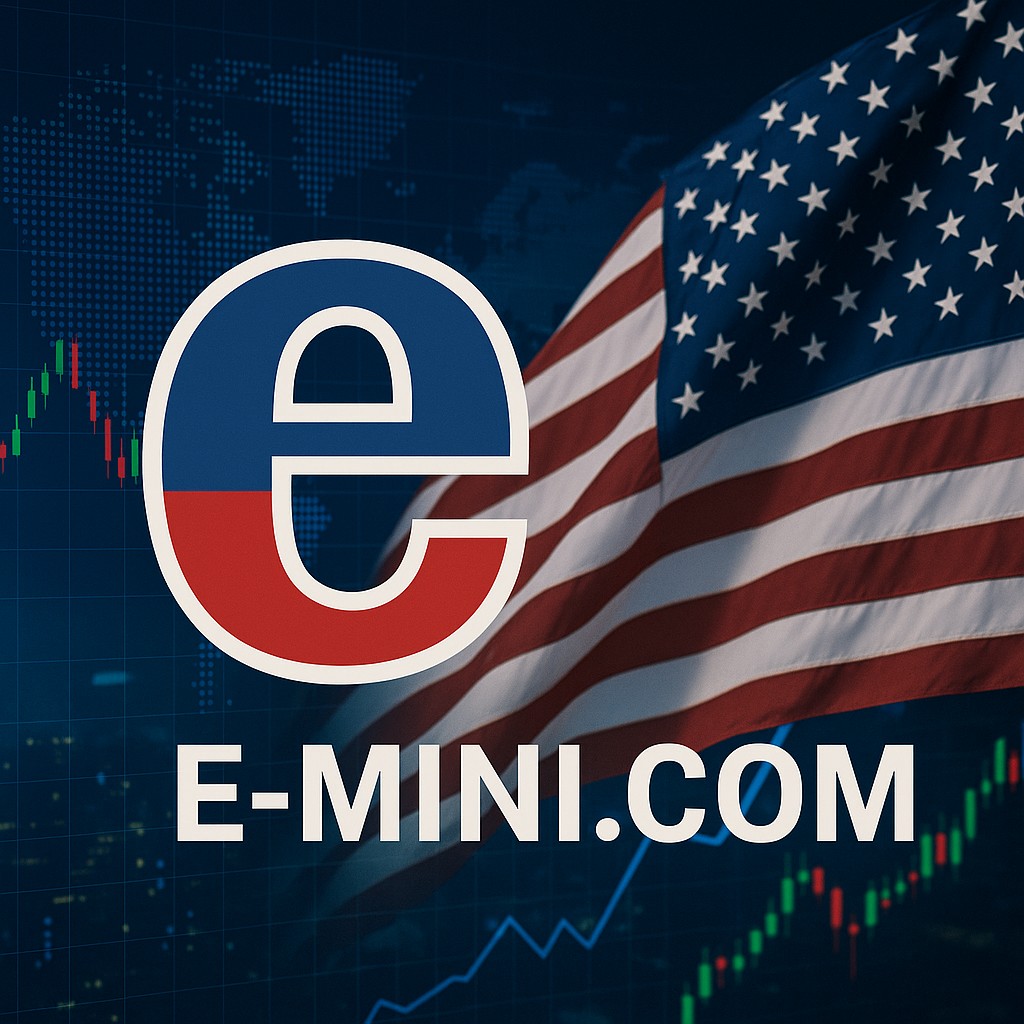The Russell 2000 futures contract is an integral part of the futures market, providing investors with an efficient way to speculate on or hedge against movements in the small-cap sector of the U.S. equity market. This contract is based on the Russell 2000 Index, which tracks 2,000 of the smallest companies in the Russell 3000 Index. It offers unique opportunities for both retail traders and institutional investors, helping them manage risk and capitalize on market movements. In this article, we will explore the history of the Russell 2000 futures, the different types of contracts available, who trades them, and the advantages and disadvantages of trading them as a retail trader, hedger, or institution. Additionally, we will discuss why E-Mini.com is a preferred platform for trading these contracts.
The History of the Russell 2000 Futures Contract
The Russell 2000 Index was first introduced in 1984 by the Frank Russell Company, which later became part of the London Stock Exchange Group. The index was designed to represent the performance of the U.S. small-cap sector, comprising the smallest 2,000 stocks in the broader Russell 3000 Index. This index quickly gained popularity among investors as a more focused gauge of the small-cap market compared to other indices like the S&P 500, which concentrates on larger companies.
As the Russell 2000 Index became more prominent, the need for a futures contract based on it arose. Futures contracts are financial instruments that allow traders to speculate on the future value of an asset or index or to hedge against potential price fluctuations. By 1993, the Russell 2000 futures contract was introduced to the market, enabling traders to gain exposure to small-cap U.S. stocks without directly buying the underlying equities. This opened new avenues for investors seeking to diversify their portfolios and for institutions needing to hedge against market volatility.
Types of Russell 2000 Futures Contracts
Today, there are several variations of the Russell 2000 futures contract, each catering to different types of investors based on their risk tolerance, investment size, and trading objectives. The most notable types are:
- E-Mini Russell 2000 Futures Contract: The E-Mini Russell 2000 contract is a smaller version of the full-size contract, introduced to make trading more accessible to retail investors and smaller institutions. The E-Mini contract is one-fifth the size of the full contract, typically representing $10 per index point. This smaller contract size offers more flexibility and requires less margin, making it ideal for individual traders who want to gain exposure to small-cap stocks without the significant capital commitment of a full-size contract.
- Micro E-Mini Russell 2000 Futures Contract: The Micro E-Mini Russell 2000 is even smaller, representing just $5 per point of the index. This contract is perfect for traders who are new to futures trading or those who wish to fine-tune their positions with smaller increments. The lower margin requirements and reduced capital risk make it an attractive option for both retail traders and institutions looking to hedge more granularly.
Who Trades Russell 2000 Futures?
The Russell 2000 futures contract attracts a wide range of market participants, including retail traders, hedgers, and institutional investors. Each group has its own reasons for trading these futures, based on their specific financial goals and risk management needs.
- Retail Traders: Individual traders often use E-Mini Russell 2000 futures and Micro E-Mini contracts to speculate on price movements in the small-cap market. These traders are typically looking to profit from short-term fluctuations in the Russell 2000 Index. Retail traders are drawn to the liquidity and leverage provided by futures trading, allowing them to control a larger position with less capital compared to directly investing in stocks.
- Hedgers: Companies and institutional investors often trade Russell 2000 futures as a way to hedge their exposure to small-cap stocks. For instance, if a portfolio manager holds a significant position in small-cap equities, they might use futures contracts to offset potential losses in case of a market downturn. By shorting Russell 2000 futures, hedgers can protect their portfolios against adverse price movements in the index.
- Institutional Investors: Large institutions such as hedge funds, pension funds, and mutual funds also trade Russell 2000 futures. For these investors, futures contracts offer a cost-effective way to gain broad exposure to the U.S. small-cap sector without the need to individually purchase each stock in the index. Institutions may use both full-size and E-Mini contracts to adjust their market exposure based on changing economic conditions or investment strategies.
Advantages of Trading Russell 2000 Futures
The Russell 2000 futures contract offers numerous advantages to different types of traders and investors. These advantages include:
- Leverage: One of the biggest advantages of futures trading is leverage. Futures contracts allow traders to control a large position with a relatively small amount of capital. This is especially appealing to retail traders, who can amplify their gains (though they also risk amplifying their losses). The E-Mini Russell 2000 and Micro E-Mini contracts offer lower margin requirements, making them more accessible to a wider range of investors.
- Liquidity: Russell 2000 futures are highly liquid, meaning that traders can easily enter and exit positions without significantly affecting the market price. This liquidity is crucial for both retail traders and institutions, as it allows for efficient execution of trades and minimizes the risk of slippage.
- Diversification: By trading Russell 2000 futures, investors can gain exposure to the small-cap segment of the U.S. equity market. This diversification is valuable for portfolio managers who want to spread their risk across different asset classes or market segments.
- Hedging Opportunities: For institutional investors and hedgers, Russell 2000 futures provide a useful tool for managing risk. By taking an opposite position in the futures market, investors can offset potential losses in their portfolios, reducing overall risk.
Disadvantages of Trading Russell 2000 Futures
Despite their many advantages, Russell 2000 futures contracts also come with certain risks and drawbacks:
- Leverage Risk: While leverage can magnify gains, it also magnifies losses. For retail traders who are not experienced in futures trading, the use of leverage can be dangerous. A small adverse movement in the index can lead to substantial losses, especially if the trader has over-leveraged their position.
- Volatility: The small-cap stocks that make up the Russell 2000 Index tend to be more volatile than larger-cap stocks. This increased volatility can lead to sharp price swings in the futures contract, which may not be suitable for all investors. Retail traders, in particular, may find it challenging to navigate the heightened risk associated with Russell 2000 futures.
- Margin Requirements: Although E-Mini and Micro E-Mini contracts require less margin than the full-size contract, futures trading still requires traders to maintain a margin account. If the market moves against a trader’s position, they may be subject to margin calls, requiring them to deposit additional funds to maintain their position.
E-Mini.com: The Ideal Platform for Trading Russell 2000 Futures
For those looking to trade Russell 2000 futures, E-Mini.com stands out as an excellent platform for several reasons. As a division of Cannon Trading, E-Mini.com is known for its long-standing experience in the futures market, providing reliable and transparent services to traders.
- User-Friendly Platform: E-Mini.com offers a highly intuitive trading platform that caters to both novice and experienced traders. The platform provides real-time market data, advanced charting tools, and customizable trading features, making it easy to track and execute trades in Russell 2000 futures contracts.
- Competitive Pricing: E-Mini.com offers low commission rates and competitive margin requirements, especially for E-Mini Russell 2000 and Micro E-Mini contracts. This cost-effective structure appeals to retail traders who want to minimize their trading expenses while gaining exposure to the small-cap market.
- Expert Support: As part of Cannon Trading, E-Mini.com provides excellent customer support, with a team of experienced brokers who understand the complexities of futures trading. This ensures that traders receive personalized guidance and support, whether they are new to Russell 2000 futures or seasoned professionals.
- Educational Resources: E-Mini.com is committed to helping traders succeed by offering a wealth of educational resources, including webinars, market analysis, and tutorials on futures trading strategies. This helps traders stay informed about market trends and make more informed decisions when trading Russell 2000 futures.
The Russell 2000 futures contract has evolved into a crucial instrument for traders and investors looking to gain exposure to the U.S. small-cap market. With various contract sizes, including the E-Mini and Micro E-Mini Russell 2000 contracts, traders of all sizes can participate in this dynamic market. Whether you are a retail trader, hedger, or institutional investor, Russell 2000 futures offer opportunities for speculation, diversification, and risk management. However, like all futures trading, it carries risks that need to be carefully managed.
For those interested in trading Russell 2000 futures, E-Mini.com provides an excellent platform with user-friendly features, competitive pricing, and expert support. By understanding the advantages and challenges of these contracts, traders can better position themselves to succeed in the world of futures trading.
To open a futures account with E-Mini.com, please click here.
Ready to start trading futures? Call US 1(800)454-9572 – Int’l (310)859-9572 email info@cannontrading.com and speak to one of our experienced, Series-3 licensed futures brokers and start your futures trading journey with E-Mini.com today.
Disclaimer – Trading Futures, Options on Futures, and retail off-exchange foreign currency transactions involves substantial risk of loss and is not suitable for all investors. Past performance is not indicative of future results. You should carefully consider whether trading is suitable for you in light of your circumstances, knowledge, and financial resources. You may lose all or more of your initial investment. Opinions, market data, and recommendations are subject to change at any time.
Important: Trading commodity futures and options involves a substantial risk of loss. The recommendations contained in this writing are of opinion only and do not guarantee any profits. This writing is for educational purposes. Past performances are not necessarily indicative of future results.
**This article has been generated with the help of AI Technology. It has been modified from the original draft for accuracy and compliance.
***@cannontrading on all socials.





